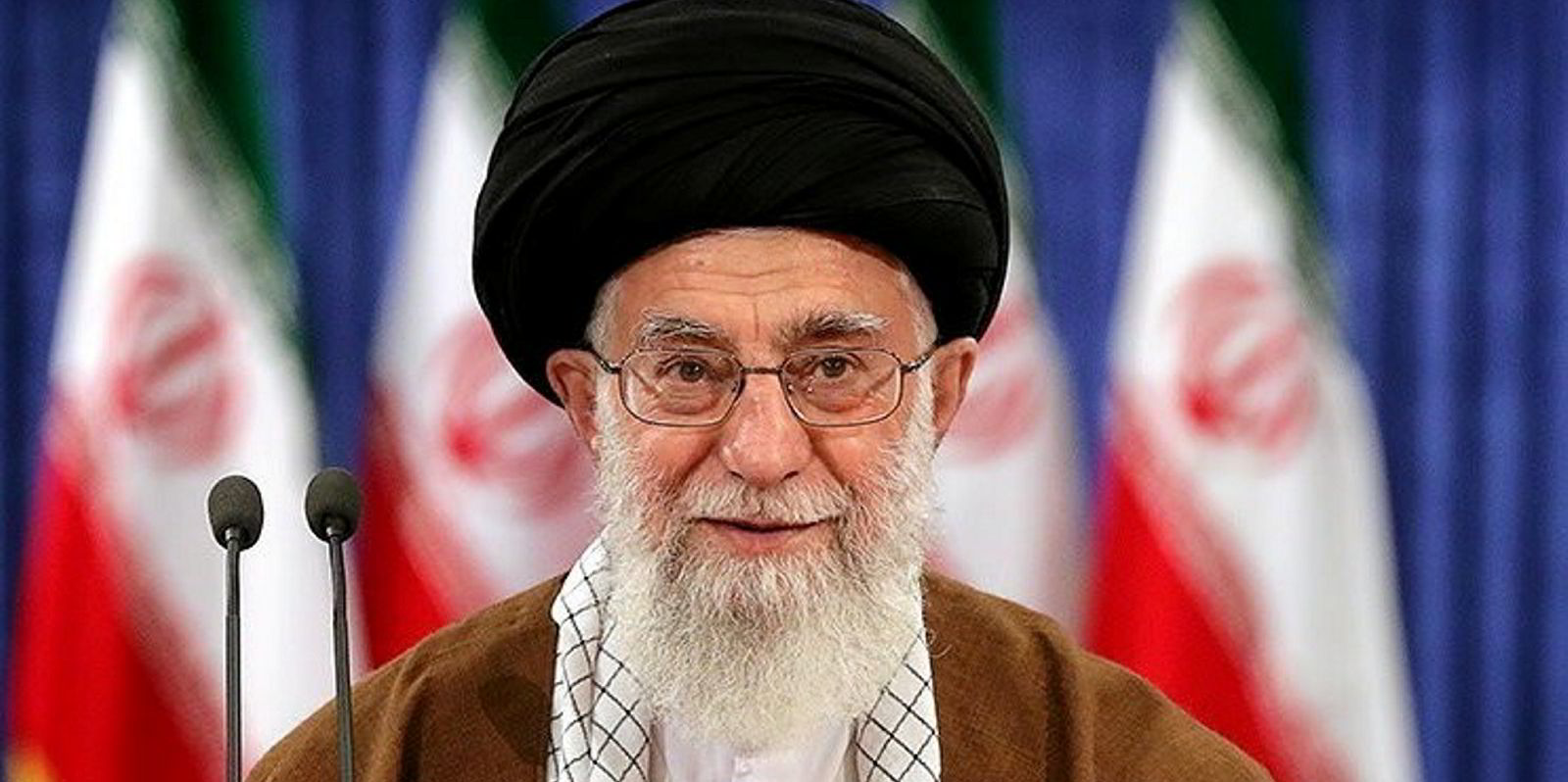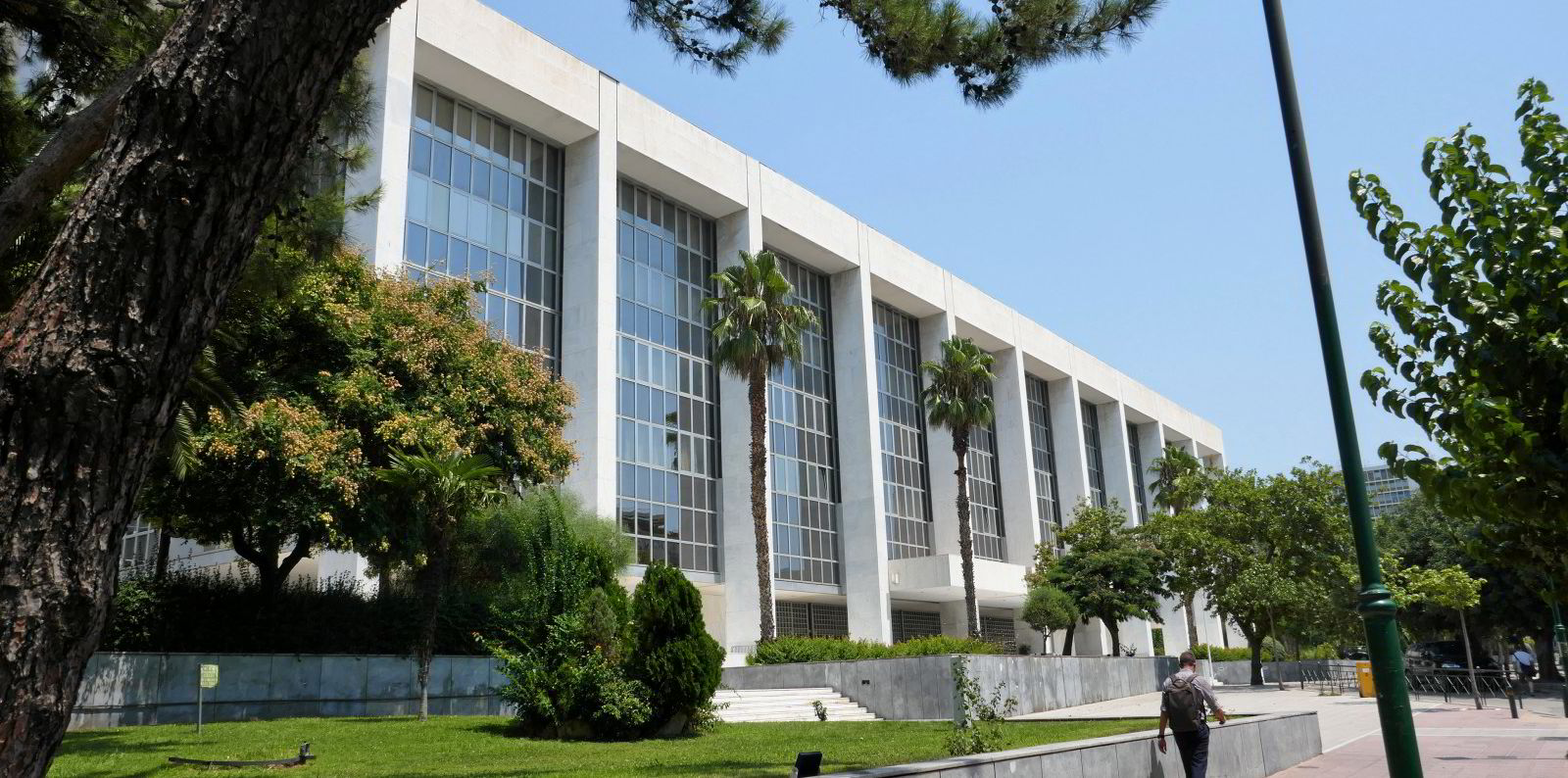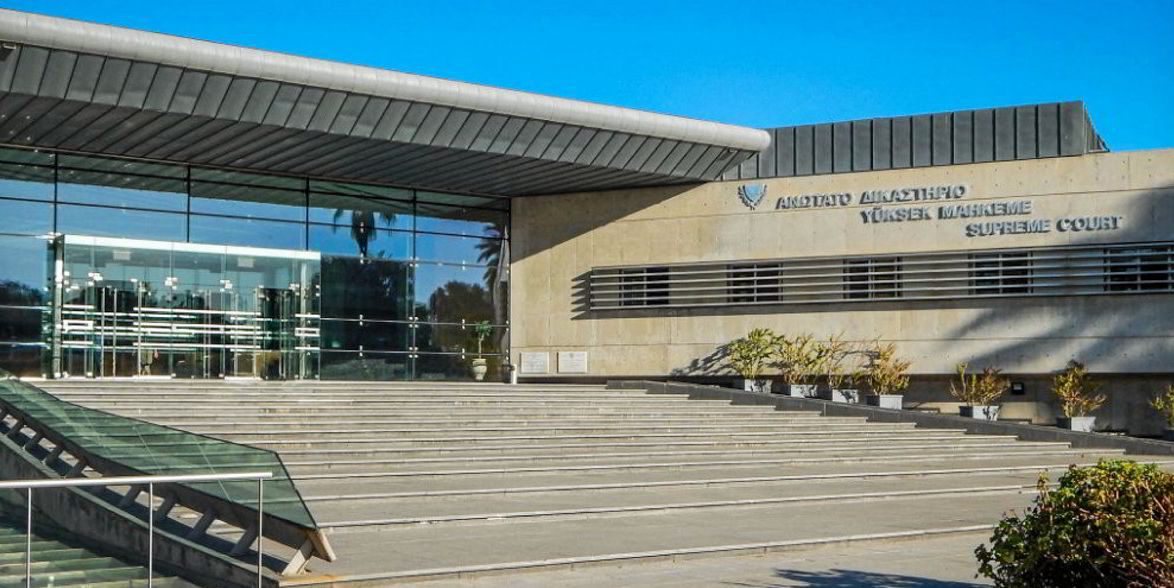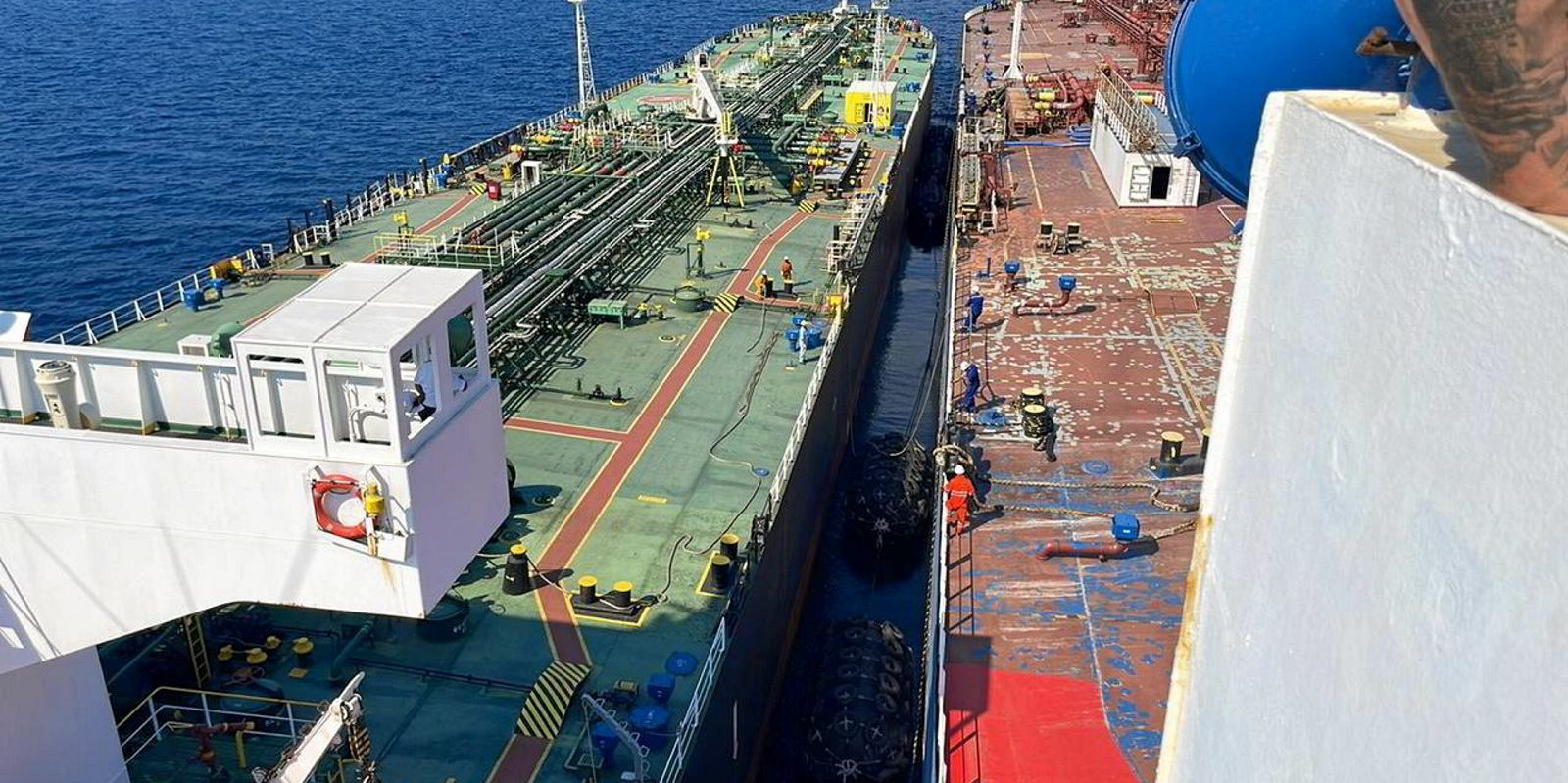Several months after a string of tit-for-tat tanker arrests in Greece and Iran, diplomatic talks to secure the mutually agreed release of three vessels blocked in the two countries have failed to make any visible progress.
The 157,400-dwt Delta Poseidon (built 2011) and the 150,000-dwt Prudent Warrior (built 2017), two Greek-flagged suezmaxes with about 50 seafarers on board, have been held by Iran since 28 May as a bargaining chip to free the 115,400-dwt Lana (built 2003) — an Iranian-flagged aframax immobilised in the Aegean Sea since mid-April.
Delta Tankers and Polembros Shipping, the companies managing the two Greek vessels, had every reason to believe that their ordeal would finish soon after the underlying cause of the dispute was resolved in late July in Tehran’s favour.
Greece’s supreme court then allowed the Lana to go ahead and recoup 56,000 tonnes of crude that Greek authorities had briefly removed from the ship at the behest of the US.
Furthermore, Delta and Polembros also pledged to not raise any claims against Iran for the considerable sums they are still paying Tehran each week for the vessels’ maintenance and security.
However, the Iranian government seems bent to push its advantage even further.
Some sources close to the case believe Tehran is seeking guarantees that the Russian-controlled Lana will not be intercepted again on the high seas for the oil it is carrying on Iran’s account.
According to other sources, Iranian negotiators have also raised new demands and grievances against Athens, which are unrelated to the Lana case.
TradeWinds has already extensively reported about one of the issues that Iran is said to have broached.
This concerns a number of distressed tankers in the former fleet of Greece’s Marvin Shipping, which the Islamic Republic of Iran Shipping Lines (IRISL) originally owned and continues to claim as its own.
For about a year now, Iran has been trying to thwart the auction sales of five tankers in the former Marvin fleet, claiming that IRISL was defrauded of the ships’ ownership.
Iran is now said to be pushing the Greek government to support its efforts in the IRISL case.
New issues such as this go far above the brief and negotiating power of the low-level Greek diplomats and government officials that have negotiated with the Iranians so far.
“It’s about time that top decision-makers get involved,” one source said.
Partial repatriation
Some progress has been made to repatriate some of the Greek seafarers on board the two trapped vessels.
PENEN, a Piraeus-based seafarer union, announced on Sunday that moves are underway to replace officers on board the Delta Poseidon and Prudent Warrior.
However, such exchanges seem to concern just a very small number of seafarers for the time being, do nothing to resolve the underlying dispute entangling the three vessels and may even complicate it further.
“If you ask me, replacing one set of hostages with another doesn’t make any sense,” one source closely observing the case said.
The crew exchange operation seems to have been agreed over the heads of the two Greek vessels’ owners.
This confirms the impression that the Greek side does not present a united front in the talks.
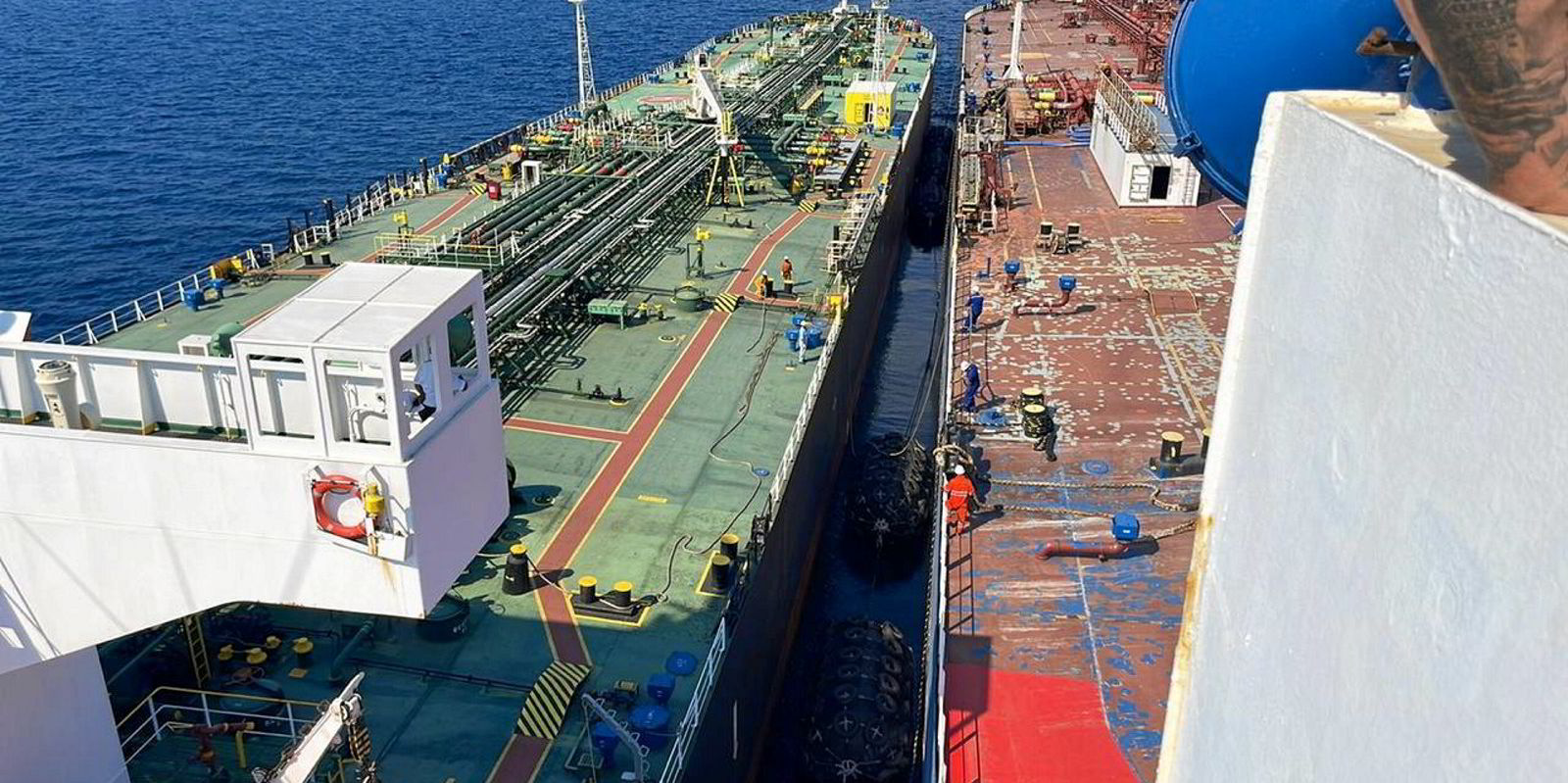
Shipowning circles have long complained that the Greek foreign ministry has been keeping owners in the dark about its negotiating moves.
“The understanding, initially, was that there would be a single solution for the seafarers, the ships and the cargo,” the source said.
The foreign ministry did not respond to a request for comment.
No crew exchange is known to have taken place on the Lana, which has 19 Russian seafarers on board.
The Lana is still immobilised off Piraeus, fully laden with the cargo that the US had asked Greece to seize as property of Iran’s Islamic Revolutionary Guard Corps (IRGC).
However, Greek courts dismissed the US case, saying the cargo’s documents failed to sufficiently prove that the owner of the oil is the IRGC.
